Does Renters Insurance Cover Storage Units? What You Need To Know
-
Pete Ortiz
- Last updated:
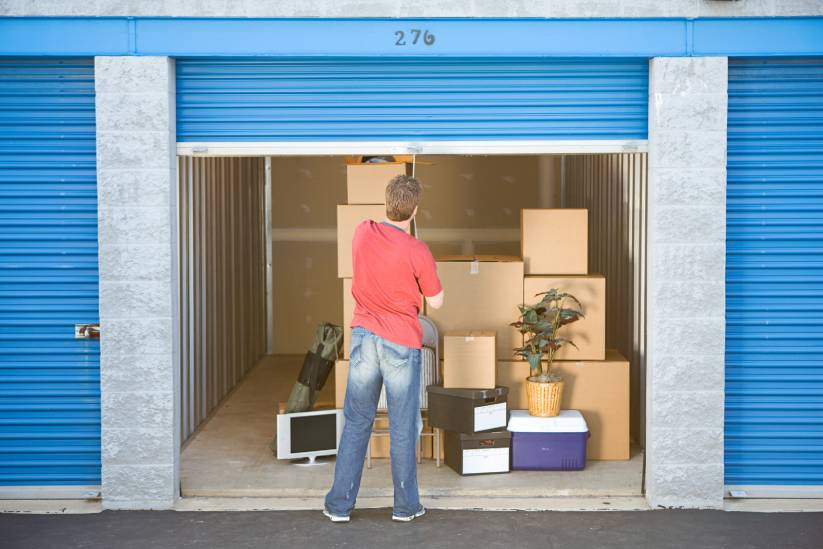
Renters insurance is an often overlooked but necessary component of renting a residence. It covers a wide variety of items and situations, but one important question many renters have is whether their renter’s insurance covers storage units. The answer is yes, it does cover items in storage units – but only up to a limited amount that will vary per your policy and insurer. Understanding the details of the coverage and what else you should know is essential to making sure you’re properly covered.
 What to Know About Renters Insurance and Storage Units
What to Know About Renters Insurance and Storage Units
When it comes to storage units, renters insurance can provide coverage for your belongings in the event of theft, damage, or destruction of your property. In addition to this, it can also provide coverage for additional costs associated with the storage unit, like the cost of storage unit rental and the cost of a replacement lock if the original is damaged or lost. Knowing the specifics of your particular policy and what other items your renters insurance covers is the best way to ensure you are adequately protected.
However, while renters insurance will cover many items, it won’t cover you if you negligently damage or destroy someone else’s property, including a storage unit. And note that if you’re renting a house, condo, or apartment, you may also be covered under your landlord’s insurance policy. Also, if you’re renting a storage unit, you will need to purchase separate coverage for the unit itself, as well as for the contents inside on top of your standard renters insurance policy.
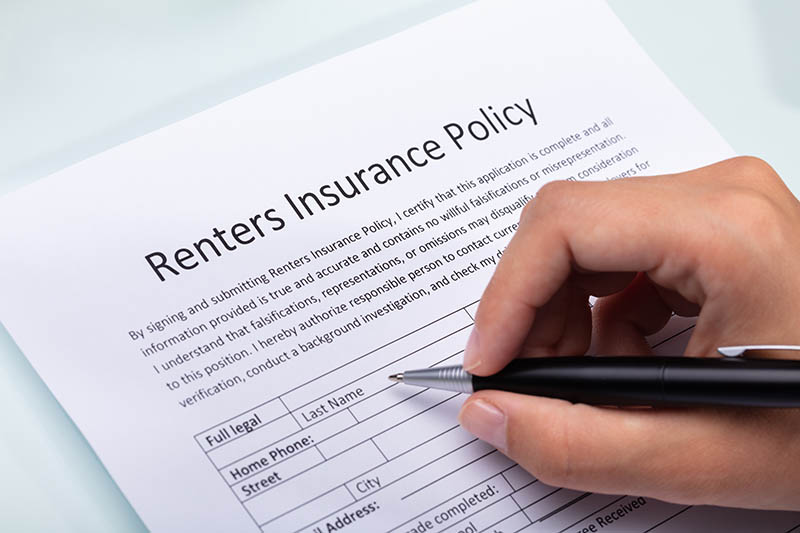
How Much Storage Unit Coverage Is Provided?
The amount of coverage you are entitled to will depend on a number of different factors, including the type of storage unit you are utilizing and the amount you agreed to pay for the unit. Generally, a standard $10-$50 per day coverage is common, though it will depend on the terms of your policy and the value of the items in your storage unit. The amount you are covered for will also depend on the location of the storage unit. Typically, a storage unit located inside a building will be covered at a higher level than one located in a parking lot.
What If the Unit Is Damaged by Natural Disasters?
While most policies will generally provide coverage for theft, damage, or destruction of your property, most won’t provide coverage for you, the renter, and don’t include coverage if the damage is caused by natural disasters, like a fire or flood. However, this can vary by policy, so it’s important to know the ins and outs of different policies and weigh them against each other before committing to one specific policy.
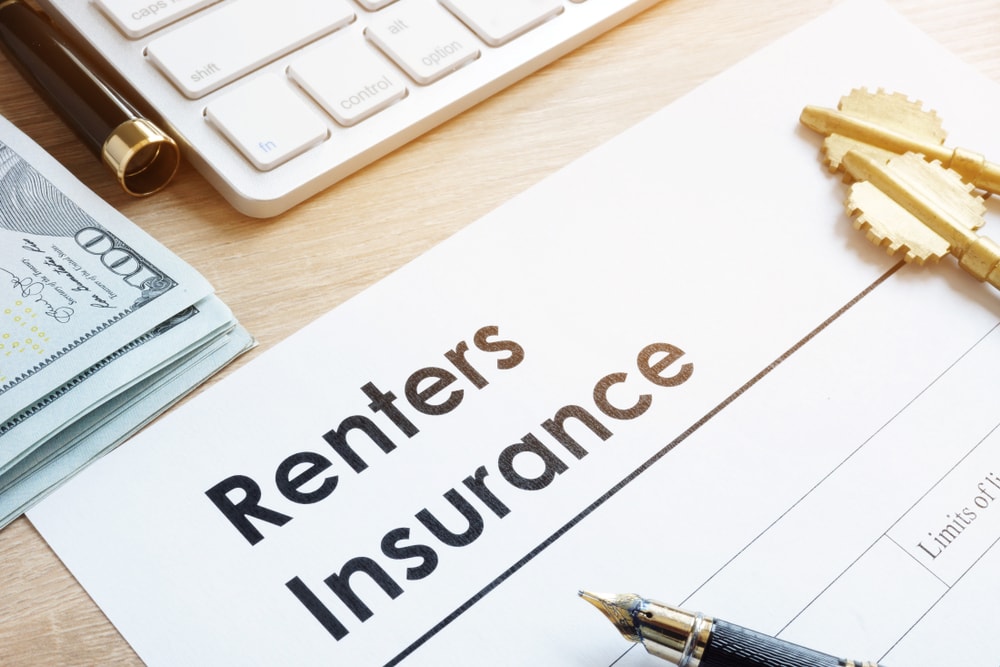
Will Homeowners Insurance Cover a Storage Unit?
Your homeowner’s insurance provides “off-premises” coverage similar to what you get for your home. This coverage covers your personal property, but it can also cover items that are stored in storage units. The coverage can vary depending on the type of loss.
What Items Does Renters Insurance Not Cover?
There are a number of items that renters insurance will typically not cover, including:
- Paying taxes on any money or assets recovered from the theft, damage, or destruction of your property
- Repainting or rebuilding the premises if your property is destroyed
- Cleaning up the premises after the theft, damage, or destruction of your property
- Expenses associated with storing your items for an extended period of time, like the cost of a lock if you don’t have a direct connection to the unit, or the cost of renting a storage unit
- Transportation costs associated with storing your items, such as the cost of a ride to the storage unit, or a ride to and from the storage unit
Tips and Tricks for Organizing and Maximize Your Space
It can be easy to get overwhelmed by all the clutter and items you need to store, but with a few simple tips and tricks, you can easily organize and maximize the space in your storage unit. Let’s take a look at a few ways to do so.
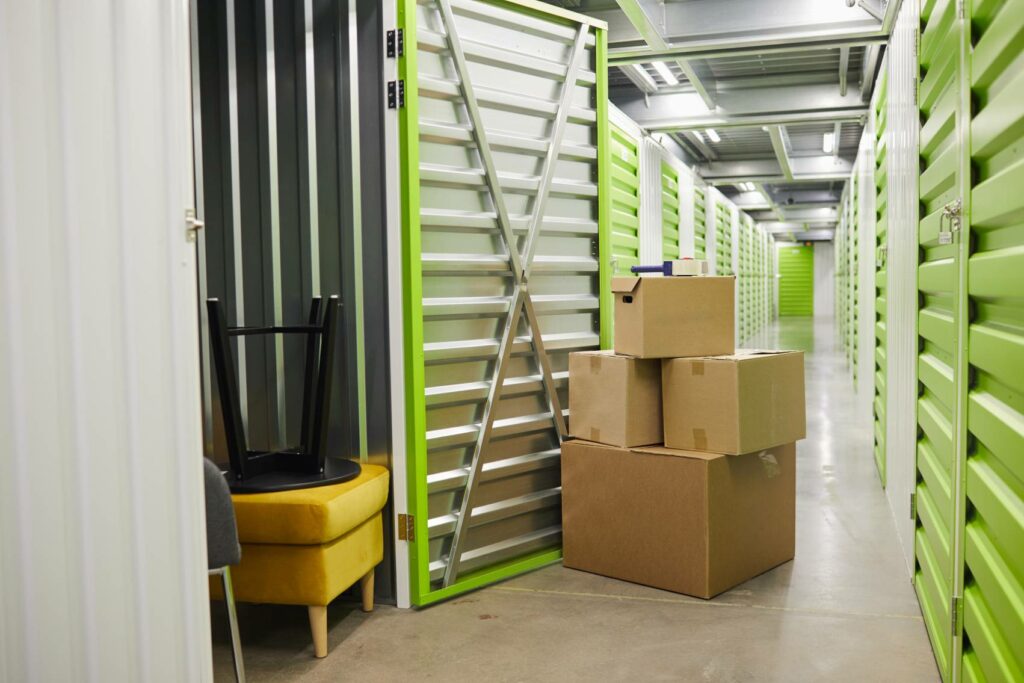
Utilize the Walls of Your Storage Unit
Bins and storage containers are great ways to help you make the most efficient use of your storage unit. By utilizing the walls, you can maximize the storage unit’s floor space with storage bins, and create a visual wall display with signs and shelving.
Invest in Stackable Containers
When you’re organizing large items, it helps to invest in stackable containers. These containers allow you to easily stack items such as clothes. Stackable containers are also great for storing smaller items like books, toys, electronics, and seasonal items. By investing in these containers, you can create visual storage displays, save space in your storage unit, and keep items organized.
Label Everything Clearly
Whether you’re downsizing, moving, or just need extra storage space, renting a storage unit can be a great solution. However, it can be easy to get overwhelmed by all the clutter and items you need to store. By labeling everything clearly, you can quickly identify items in your storage unit, keep track of what’s in there, and easily find what you need.
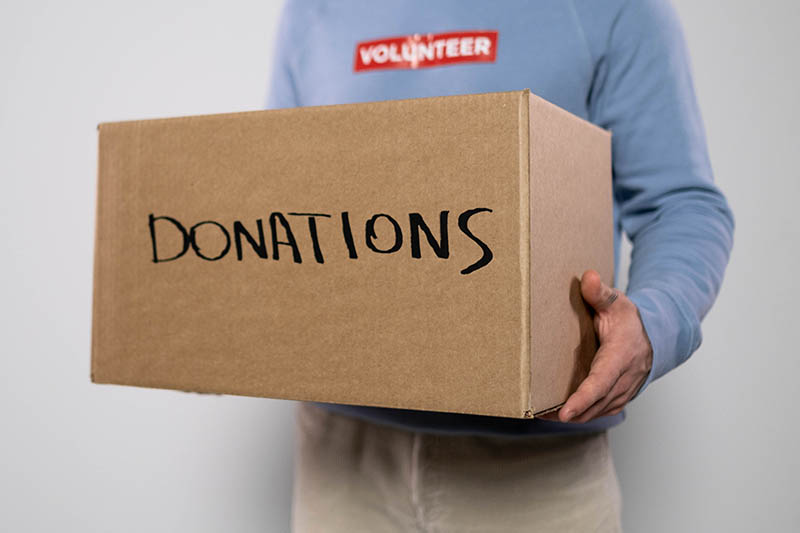
Create an Inventory
It may sound a bit extra, but in addition to labeling everything clearly, creating an inventory is actually another awesome way to organize and keep track of items in your storage unit. An inventory is a list of all the items you have stored in your storage unit.
It helps you keep track of what’s actually in your unit and what’s left, which can be helpful if you’re moving or looking to get rid of old items to make more space for new purchases or family members’ items. Keeping an inventory will help you keep track of items that are “pitch-worthy” when it’s time to create new space. And keeping an inventory can also help you keep track of potential losses for insurance reasons in the event of a theft or loss of property.
Keep Heavy Items on the Bottom
When it comes to storing items in your storage unit, the bottom is generally where things stay that don’t need to be moved often. These are items that are heavier than other items, like appliances, furniture, bikes, and tools. Keeping heavy items on the bottom of your unit helps prevent them from shifting and falling, which can damage your unit and the items stored inside.
One of the best things that you can do for yourself to make more space in your unit is to organize those heavy items on the bottom so that they take up as little room as possible. Be sure to take up all corners and even stack these items on top of each other, if possible. When creating the stack, be sure not to stack it too high to where you can’t reach it safely – after all, these items are heavy.
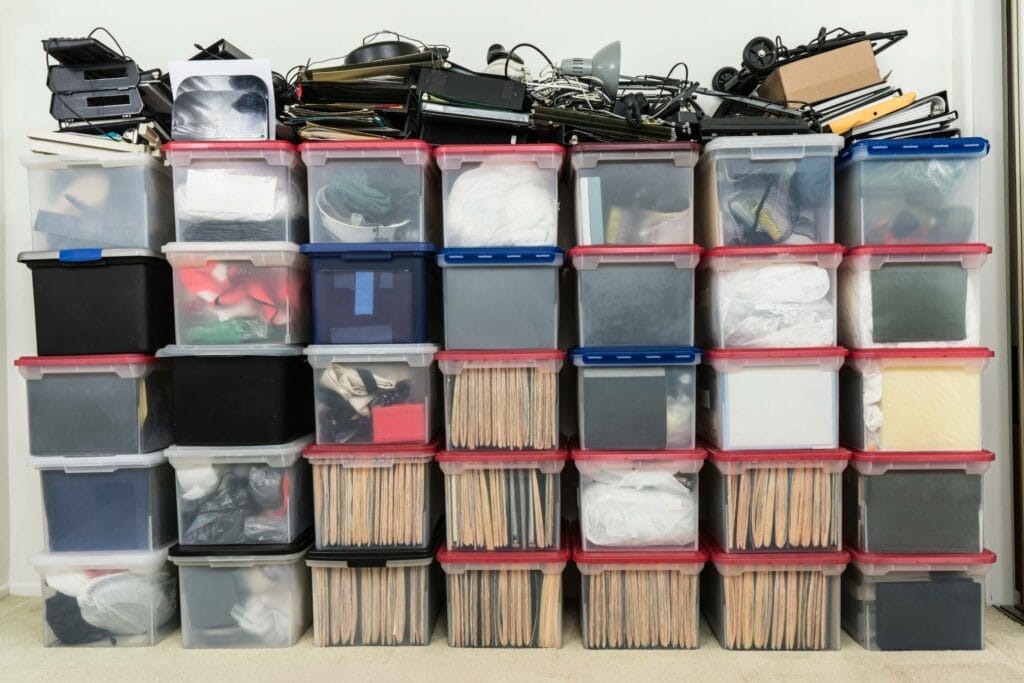
Invest in Furniture Covers
Covers aren’t necessarily for organizing, but they can be crucial and keep your furniture from becoming riddled with dust, moisture, debris, and even pests that may get into the storage unit (which have been known to ruin furniture and stored items). They are also helpful if you plan on stacking items on top of heavy furniture and can prevent knicks, dents, and scratches from appearing on your furniture.
Place Boxes on Pallets
Pallets are easy to stack and are great for keeping your items off the ground where they may be accessible to pests, dirt, and debris. And the great thing about pallets is that you can easily find them at stores like Walmart at Home Depot, and sometimes they may be available to you for free – it never hurts to ask.
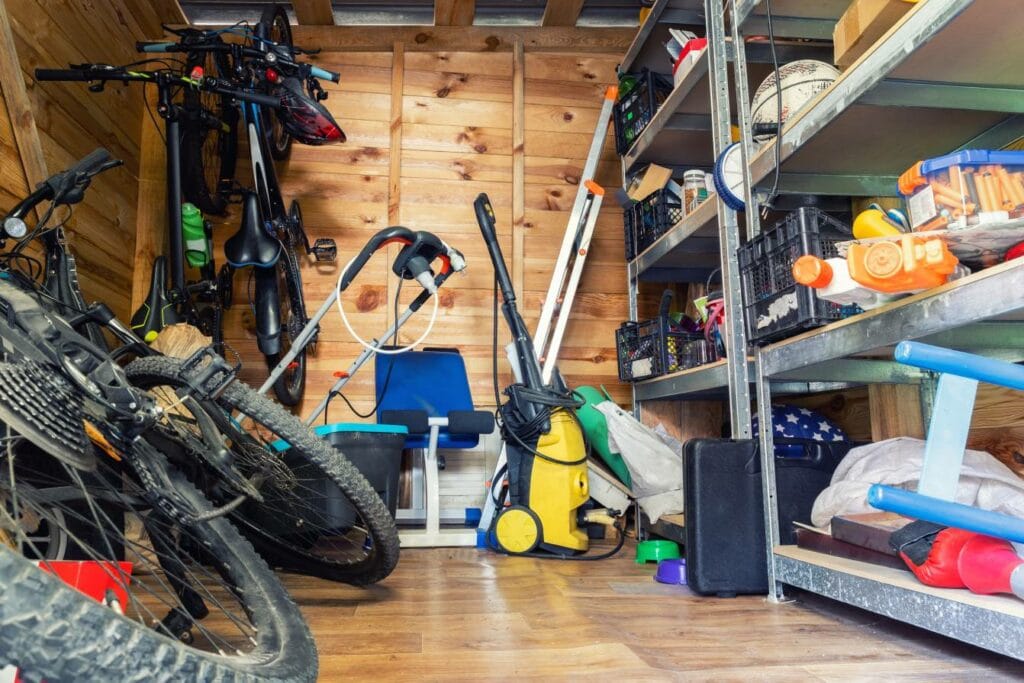
Make Use of Space Savers
Consider placing lighter items on a rolling rack or use space savers to help create more room in your storage unit. These items are great for keeping items off the ground while also keeping your storage unit organized. You can buy a quality space saver or roller for about $20, and you’ll be surprised at how much room you’ll be able to save with just one rack on the wall.
Looking for home RENTERS insurance?

Lemonade offers some of the best insurance plans you can find on the market today!
Wrapping Things Up
So yes, personal items stored in a storage unit are typically covered by renter’s insurance, but only to a certain limit. You can also get renter’s insurance for your storage unit directly to make sure you have adequate coverage for your possessions. However, exact policies vary as far as coverage, so it’s important to know what is and isn’t covered in the event that you do have to use the insurance coverage for any reason.
Featured Image Credit: Sean Locke Photography, Shutterstock
Contents

 What to Know About Renters Insurance and Storage Units
What to Know About Renters Insurance and Storage Units